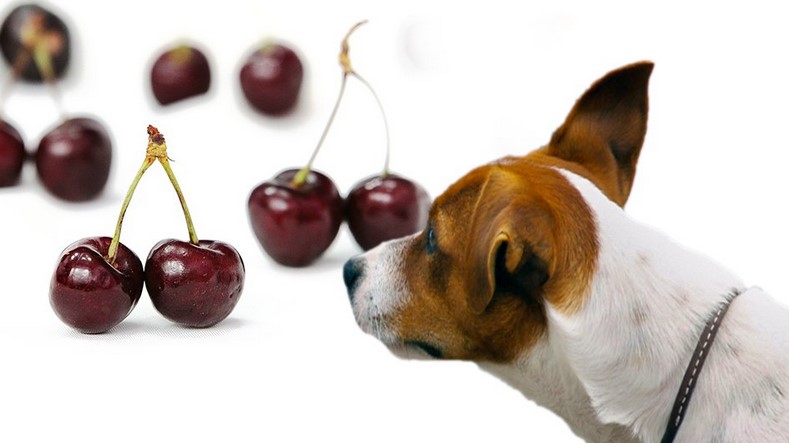Can Dogs Eat Cherries?
Cherries are a delicious treat for humans, but can dogs eat them? The answer is probably no, as cherries contain cyanide and are therefore dangerous to dogs. The seeds in cherries are nearly impossible to digest, and if your dog eats them, the seeds may end up stuck in its digestive tract. This can result in blockages in your dog’s digestive system, which can lead to diarrhoea, vomiting, and loss of appetite.
Can dogs eat cherries? The answer to that question is yes. In fact, certain cherry parts can be used as natural remedies for common dog ailments. The dangers associated with cherries occur when a dog eats the seeds or pits of a cherry, eats the plant itself, or ingests cherry leaves. Let’s learn more about cherries in dogs and what effects cherry consumption may have on your dog’s health.
Maraschino cherries
It is possible to feed your dog Maraschino cherries, but you need to make sure they can digest the fruit before you allow them to eat it. Maraschino cherries are not natural cherries. Because they are packed with sugar and have no pit, they are not a good choice for dogs. Even though maraschino cherries have no pit, they are loaded with sugar. This can result in cavities and diabetes, as well as digestive problems. You should make sure to remove the stem, leaves, and nether area before feeding your dog the fruit. Also, your dog will probably not consume enough to determine the benefits of this fruit.

Dried cherries
Dried cherries are sweet and delicious. However, some cherries are harmful to dogs. Cherry pits and stems can cause cyanide poisoning. In addition, dried cherries may cause gastrointestinal blockage and can choking hazards. Depending on the type of dried cherry, the pits can also cause intestinal obstruction. Smaller dogs are at a higher risk for cherry pits lodged in the digestive tract. If you are unsure about whether cherries are safe for your pet, consult with your veterinarian first.
Fruits with stems and seeds removed
Can dogs eat cherries with stems and seed removed? The answer is yes, but only if you strip away the pit, stem, and leaves. Cherries contain fiber, vitamins, folic acid, and antioxidants.
They also count as one of the five-a-day fruits, so you can feed your dog up to five a day! Remove the stem, seeds, and leaves first, as they’re not safe for dogs.
Cherrystones
Dogs can eat cherries, but they should not ingest the pits. While the cherry pits are harmless, the stones can cause intestinal obstruction and choking hazards. The poisonous substance in the pits is called hydrogen cyanide, and it can be fatal to a small dog if it is swallowed whole. Symptoms of poisoning include vomiting, diarrhea, and loss of appetite. If you’re worried about giving your dog a cherry treat, check with your vet first.
Moldy cherries
Dogs are not supposed to eat cherry pits or whole cherries. They are poisonous to them, and cyanide found in the cherry pit and stem can be deadly. These can cause intestinal blockages,
and ingested pits can damage the teeth of dogs. Besides the danger of cyanide poisoning, cherry pits are also high in sugar, so dogs may not like them. But if they eat too many cherries, they could damage their esophagus and cause severe problems. Symptoms of esophagus damage include lethargy, vomiting, gagging, and not eating.
Cyanide in cherries
While most people are aware that cyanide in cherries is toxic for humans, it’s not so easy for canines. Ingesting cherries or pits may lead to intestinal blockage can be life-threatening. This condition requires surgical removal of the obstruction. Additionally, cherries may cause diarrhea and bloat, and your dog might have trouble breathing or having a normal heart rate. If you suspect that your dog has consumed a cherry, consult a veterinarian right away.

Health benefits for dogs
Although cherry-eaters may have heard of its health benefits for dogs, they should also know some of the risks associated with them. Dogs who eat large quantities of cherry pits can suffer from gastrointestinal blockage. However, a single pit won’t harm a dog in small amounts.
Although cherry pits can be dangerous to dogs, leaves, stems, and pits are not. Nevertheless, owners should always supervise their dogs when feeding them cherries.
The bottom line is that cherries are a poisonous fruit, and shouldn’t be given to dogs at all. Even though they’re relatively harmless to a dog when consumed in small quantities, they can cause abdominal pain, vomiting, and diarrhea (not to mention the potential obstruction). Perhaps the safest thing you can do is just steer clear of cherries entirely. If you have cherry trees on your property, make sure to keep your dog far away from them.
